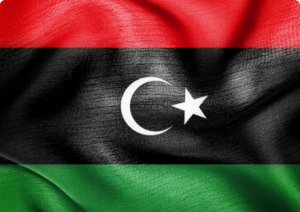Libya will come to an historic political and economic crossroads on Saturday as the first democratic elections for 40 years are held.
Already, investors are watching for the outcome of the elections with an eagle eye as opportunities abound in oil, infrastructure, property and tourism.
The Dubai Chamber of Commerce and Industry has already said it will take a trade delegation of companies from the UAE to Libya after the elections to discuss those sectors of the economy that would most benefit from foreign investment.
Hugely dependent on oil wealth and the defence industry, Libya is in dire need of development in roads, ports and basic infrastructure, as well as investment in property and consumer industries.
Its tourism industry is largely unexplored, despite a colourful history and many world heritage sites such as Greek settlements and Roman ruins.
Libya's oil wealth has largely been unaffected by the civil war and the country's financial future looks bright. It has the largest proven oil reserves in Africa, at 46.4 billion barrels, ahead of Nigeria with 37 billion, while Egypt has just 4.4 billion. Nigeria and Egypt have populations of 160 million and 81 million, respectively, compared with just over 6 million in Libya.
The country should resemble a wealthy Arabian Gulf state, such as the UAE, Qatar or Kuwait, where oil revenues have widely been redistributed to the indigenous population. "Libya has the same oil production as Kuwait and started its oil production at the same time as Kuwait and has approximately the same population as Kuwait," says Charles Gurdon, the managing director of Menas Associates, a political risk consultancy based in the United Kingdom.
"One only has to look at the two countries, or other countries in the Gulf, to recognise the waste that occurred under the Qaddafi era and also what needs to be done."
Libya has foreign currency reserves of US$170 billion (Dh624.44bn) and exported double the value of oil that it imported in goods and services in 2010, before the civil war.
Because some of the oil in Libya is pumped by joint-venture companies between the government and international players such as Total, Eni and Statoil, production has quickly returned.
"Oil production in Libya is almost back to pre-revolution levels of 1.6 million barrels per day, it is now about 1.5 million," says David Bachmann, the head of the economic and commercial section at the Austrian Embassy in Tripoli.
He is upbeat on the prospects for outside investment but warns that development of the oil industry is required to ensure production is maintained at current levels.
About 32 per cent of Libya's oil goes to Italy, 14 per cent to Germany, 10 per cent to France and 10 per cent to China, according to Austrian statistics.
"[There is] one point where we don't agree with oil producers," says Mr Bachmann. "They predict 2 million barrels a day by 2014 … But because of security issues there is not much maintenance or investment going on. Slowly production of oil will go down unless there is a change in policy."
One area of the economy where analysts expect significant growth is the property sector, which was subject to a number of stalled and cancelled projects by Gulf investors. Emaar Properties and Majid Al Futtaim Holding both shelved plans in Libya, while Al Maabar, owned by six developers: Mubadala Development, a strategic investment company owned by the Abu Dhabi Government; Aldar Properties; Al Qudra Holding; Sorouh Real Estate; Reem International; and Reem Investments, has a project that is ongoing, a retail, hospitality and residential space in Tripoli.
"[Property is] one of those sectors that covers a large range of areas," says Alex Warren, a director at Frontier, a Middle East and Africa research and advisory firm. "It's not just about construction and building materials but the business environment, investor confidence, design, architecture, planning, and can give a good picture of the general business environment in the country."
Frontier predicts grade A commercial property space in Tripoli will increase more than ninefold by 2015 from the current level of just under 100,000 square metres of gross leasable area.
But Libya's unsophisticated banking system will be one of the biggest obstacles to growth in the sector.
Currently the land registry is closed, making it difficult to verify title deeds. Many buildings also have the name and details of families who claim to have owned the land before it was taken from them by the Qaddafi regime. These disputes are likely to cause a headache for the new government for some time following elections.
(Source: The National)





